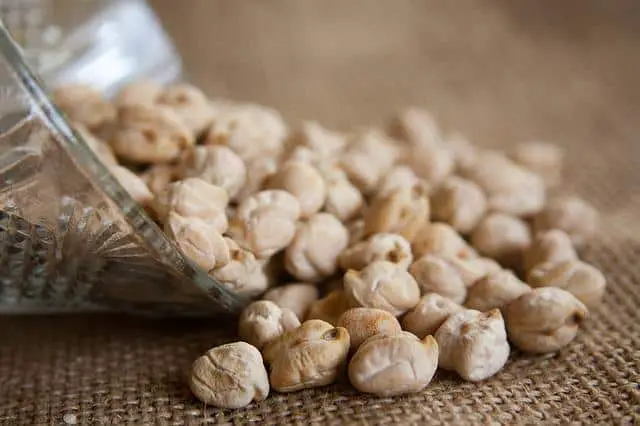
There is certainly no shortage of chickpeas in our pantries. If they are healthy for us, are they also healthy for cats? Let’s find out if the cat can eat chickpeas.
Legumes have been part of our gastronomic tradition since ancient times. Undisputed protagonists in all seasons of the year, they know how to delight us as the main ingredient in excellent and steaming soups in light and fresh salads.
In this long culinary tradition, chickpeas have conquered the third place among the most eaten legumes in the world. Undoubtedly a constant presence in our diet.
Eating them is a pleasure and even a cat realizes that, like any greedy dog, comes to our feet asking us a little about what we are eating.
And here comes the doubt: can the cat eat chickpeas? Let’s find out if this legume, which is so nutritious for us, is also suitable for cat food.
Can cats eat chickpeas?
Before knowing if the cat can eat chickpeas, it is essential to make a premise.
To ensure that our cat is always fit and healthy we must guarantee him a healthy and balanced diet, ensuring him the right nutritional and caloric intake. The cat is mainly a carnivore, therefore meat must be the basis of its diet.
Although rich in vitamins and proteins, fruits and vegetables as well as legumes must be an addition to his main meals, or at most we can give them as a reward. This is because his stomach is unable to digest them well, especially when he abuses them.
This premise to tell you that yes, the cat can eat chickpeas (strictly cooked), but moderately: in small quantities and sporadically. Chickpeas are rich in proteins, adding them to his diet, without exceeding the doses, will certainly be good for your cat.
Nutritional properties of chickpeas and benefits for cats
Although they are difficult to digest, feeding a small amount of well-cooked chickpeas from time to time will not hurt them, especially if we have noticed that they are greedy.
Chickpeas are rich in fiber and protein and introduced into the cat’s diet, they bring countless other nourishing properties to her body, such as: vitamins B-6 and K, magnesium, iron, calcium, potassium, phosphorus, folate, zinc, and many still others.
Furthermore, integrating chickpeas in the cat’s diet (always moderately) can help fight some diseases, such as:
- obesity: the fibers present in chickpeas give a sense of satiety, and this will prevent our cat from eating often;
- constipation: again thanks to the fibers, eating chickpeas can regulate intestinal transit;
- inflammations: in chickpeas there is choline, a substance that is able to reduce chronic inflammation;
- diabetes: complex carbohydrates present in chickpeas regulate blood glucose;
- high blood pressure and heart problems: chickpeas are rich in potassium but also have a low sodium content, this allows blood vessels to dilate easily, thus decreasing blood pressure and helping the heart;
- tumors: chickpeas are of great help to the liver, in fact they help detoxify itself from carcinogens.
Possible risks for the cat

We have repeatedly specified that it is important to introduce chickpeas in the cat’s diet moderately and without exaggerating the quantities.
This is because, as we all know, the cat’s stomach is unable to digest certain foods and chickpeas fall into this category.
In fact, if the cat were to consume a high amount of chickpeas it would certainly have these symptoms:
- digestive problems;
- gas in the stomach;
- flatulence;
- diarrhea.
These symptoms make the cat uncomfortable and cause annoying pains in him, which should be avoided by limiting him to eat too many chickpeas.
Also, it’s important to prefer fresh chickpeas to pre-cooked and canned ones. The latter are rich in added salt and, therefore, have a high level of sodium, which is harmful to the health of the cat, especially for the kidneys and the circulatory system.
Fresh and well-cooked chickpeas can be given to your cat, but always pay attention to the quantities, to avoid annoying problems.






